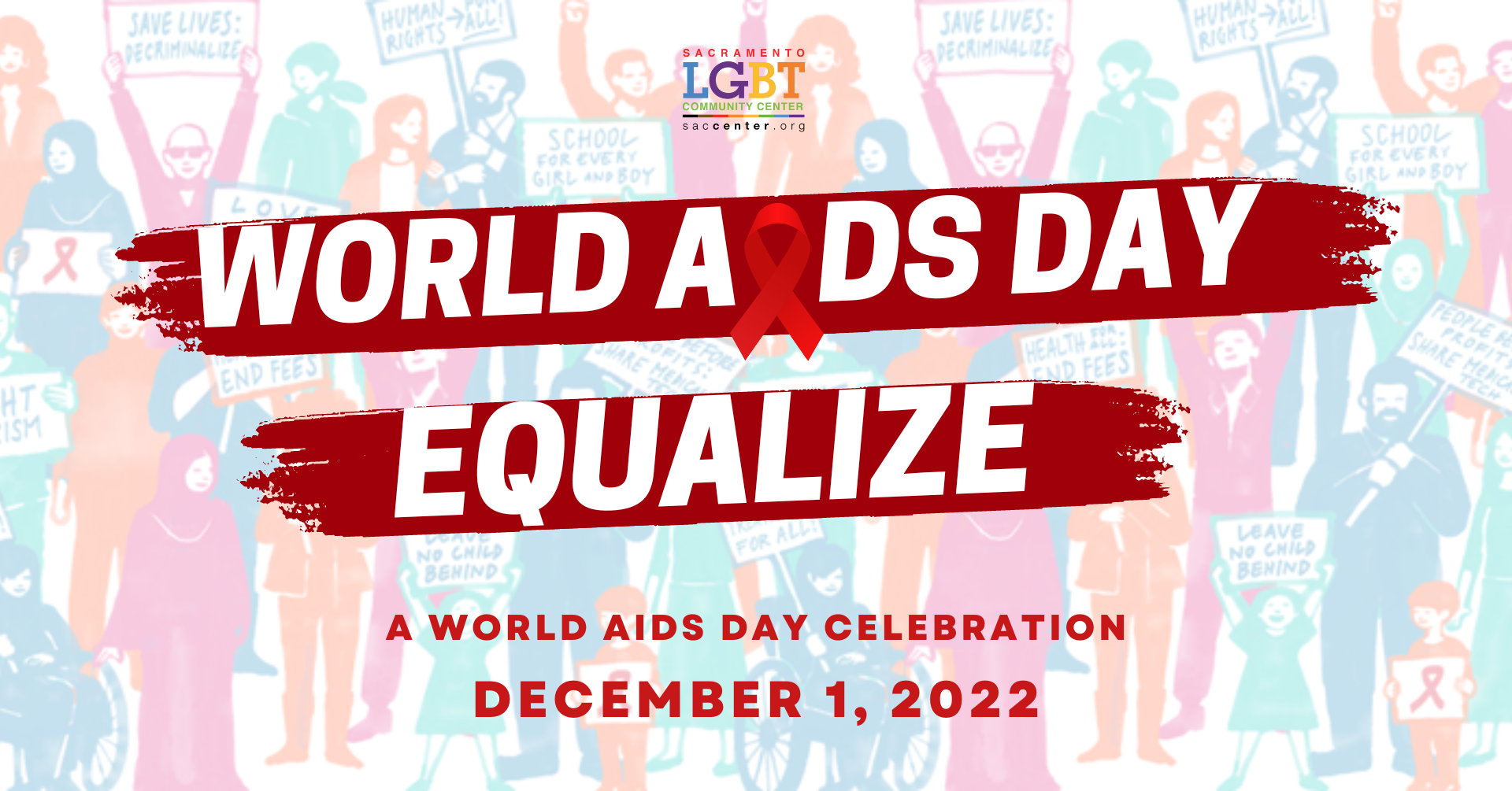

World AIDS Day Celebration
December 1, 2022 @ 5:30 pm - 8:00 pm
The Sacramento LGBT Community Center is honored to host an evening event on World AIDS Day, December 1, 2022. We have planned an evening of remembrance and celebration that will take place at the United First Methodist church at 2100 J Street, Sacramento. Doors open @ 5 p.m.
The evening will include presentations by community members and partnering organizations who will share their outlook on the past, present, and future of HIV/AIDS. Entertainment will be provided by a few local celebrity Drag Queens and a special appearance from the Gay Men’s Chorus. The evening will wrap up with a candlelight walk to the Sacramento LGBT Community Center to view our displayed AIDS Memorial Quilts and enjoy refreshments.
—
EQUALIZE – WORLD AIDS DAY 2022
The inequalities perpetuating the AIDS pandemic are not inevitable; we can tackle them. This World AIDS Day, 1 December, UNAIDS urges each of us to address the inequalities holding back progress in ending AIDS.
The “Equalize” slogan is a call to action. It is a prompt for all of us to work for the proven practical steps needed to address inequalities and help end AIDS. These include:
Increase the availability, quality, and suitability of services for HIV treatment, testing, and prevention, so that everyone is well-served.
Reform laws, policies and practices to tackle the stigma and exclusion faced by people living with HIV and by key and marginalised populations, so that everyone is shown respect and is welcomed.
Ensure the sharing of technology to enable equal access to the best HIV science, between communities and between the Global South and North.
Communities will be able to make use of and adapt the “Equalize” message to highlight the particular inequalities they face and to press for the actions needed to address them.
Data from UNAIDS on the global HIV response reveals that during the last two years of COVID-19 and other global crises, progress against the HIV pandemic has faltered, resources have shrunk, and millions of lives are at risk as a result.
Four decades into the HIV response, inequalities still persist for the most basic services like testing, treatment, and condoms, and even more so for new technologies.
Young women in Africa remain disproportionately affected by HIV, while coverage of dedicated programmes for them remains too low. In 19 high-burden countries in Africa, dedicated combination prevention programmes for adolescent girls and young women are operating in only 40% of the high HIV incidence locations.
Only a third of people in key populations— including gay men and other men who have sex with men, transgender people, people who use drugs, sex workers, and prisoners—have regular prevention access. Key populations face major legal barriers including
